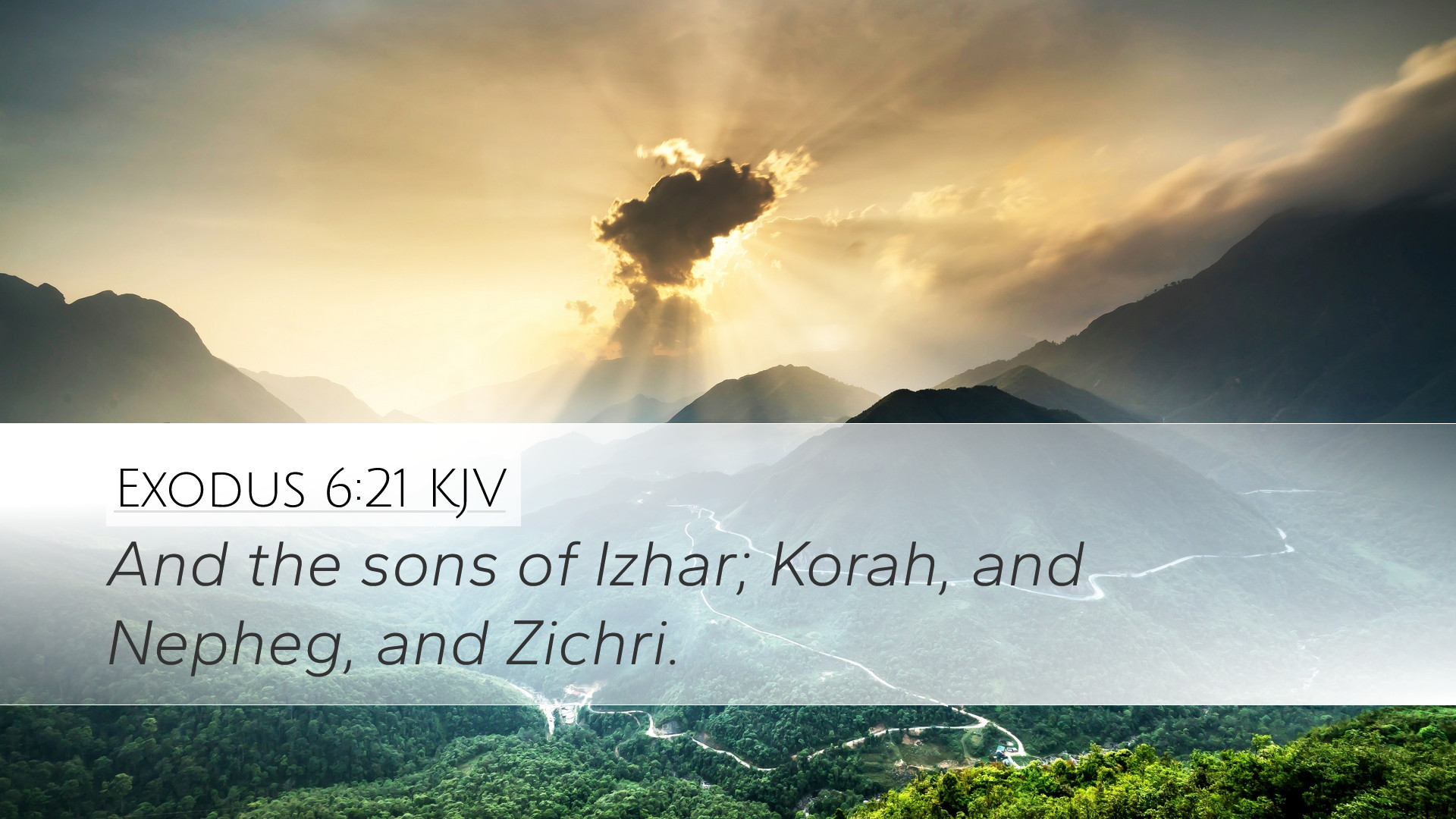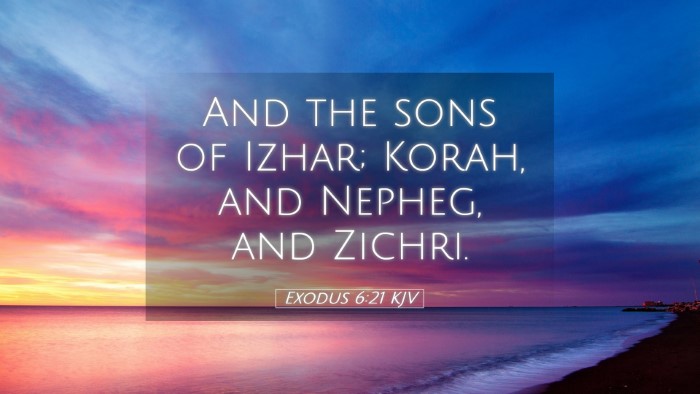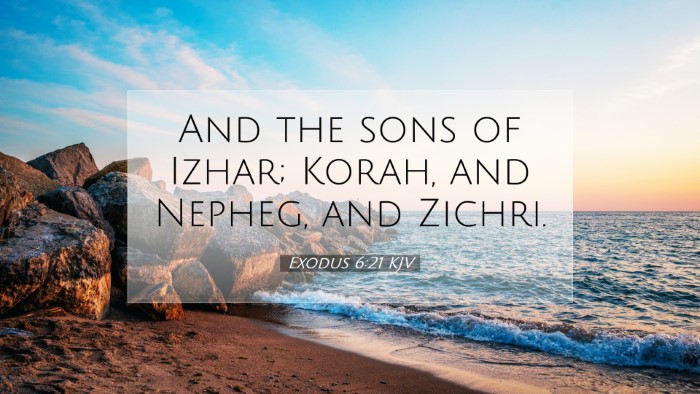Exodus 6:21 - Commentary
Bible Verse: Exodus 6:21 - "And the sons of Izhar; Korah, and Nephtheh, and Zichri."
Contextual Overview
The verse appears within a genealogical framework, providing important lineage details of the Levites. The genealogy serves not only as historical record but also highlights God's covenant with the tribe of Levi. In this context, Moses emphasizes the lineage of the priests and their significance in service to God amidst the unfolding narrative of the Exodus.
Insights from Matthew Henry
Matthew Henry notes the importance of the genealogical records in Scripture which serve to establish the legitimacy and continuity of the priestly line. In this passage, he emphasizes that the mention of Korah foreshadows future events, specifically Korah’s rebellion against Moses and Aaron's leadership.
- Significance of the Name Korah: The name Korah means "bald," which Henry speculates may indicate a form of mourning or a dedication to divine service.
- Warning Against Rebellion: Henry points out that Korah’s inclusion in this genealogy serves as an important theological warning about the consequences of rebellion against divinely ordained authority.
Insights from Albert Barnes
Albert Barnes elaborates on the significance of the families listed in Exodus 6:21, reflecting on their roles within the broader narrative of Israel's journey from slavery to freedom. He highlights the following points:
- Culmination of Covenantal Promises: The genealogy indicates that God is fulfilling His promises to the descendants of Abraham, Isaac, and Jacob by ensuring that the Levitical line is preserved.
- Identity and Legacy: Barnes discusses the importance of identity rooted in genealogy, especially for the Israelites, who would view these names with reverence as part of their spiritual heritage.
Insights from Adam Clarke
Adam Clarke provides a thorough theological reflection on the mention of Korah and his brothers. He notes:
- Role and Responsibility: Clarke emphasizes that the Levites had specific roles in the tabernacle which linked their functioning to God's worship.
- Historical and Moral Lessons: The narrative foreshadows events where Korah’s rebellion against Moses highlights not only the dangers of pride and ambition but also God’s justice against insubordination.
Theological Themes
This verse, while simply presented, invokes profound theological themes including:
- Divine Authority: The structure of leadership and authority established by God is essential for order within His people.
- Covenant Faithfulness: The preservation of the Levitical line exemplifies God's steadfastness in fulfilling promises throughout generations.
- Moral Integrity: The narrative serves as a reminder of the need for integrity in leadership and the consequences of deviating from God's appointed path.
Applications for Contemporary Readers
For today's pastors, theologians, and Biblical scholars, there are several key applications from Exodus 6:21:
- Historical Reflection: Understanding the rich history of the Levitical line can inform our perspective on Scripture and the continuity of God’s covenant.
- Role of Leaders: Just as with Moses and Aaron, contemporary leaders are reminded that with authority comes responsibility towards God and their communities.
- Selective Rebellion: Learning from Korah’s story, readers are challenged to approach authority and God’s design with humility and reverence.
Conclusion
Exodus 6:21 may appear to be a simple genealogical reference, but it encapsulates core truths regarding leadership, covenant fidelity, and the dangers of rebellion. The commentaries from Henry, Barnes, and Clarke enrich our understanding, encouraging scholars and practitioners alike to delve deeper into the lessons embedded within the text.


